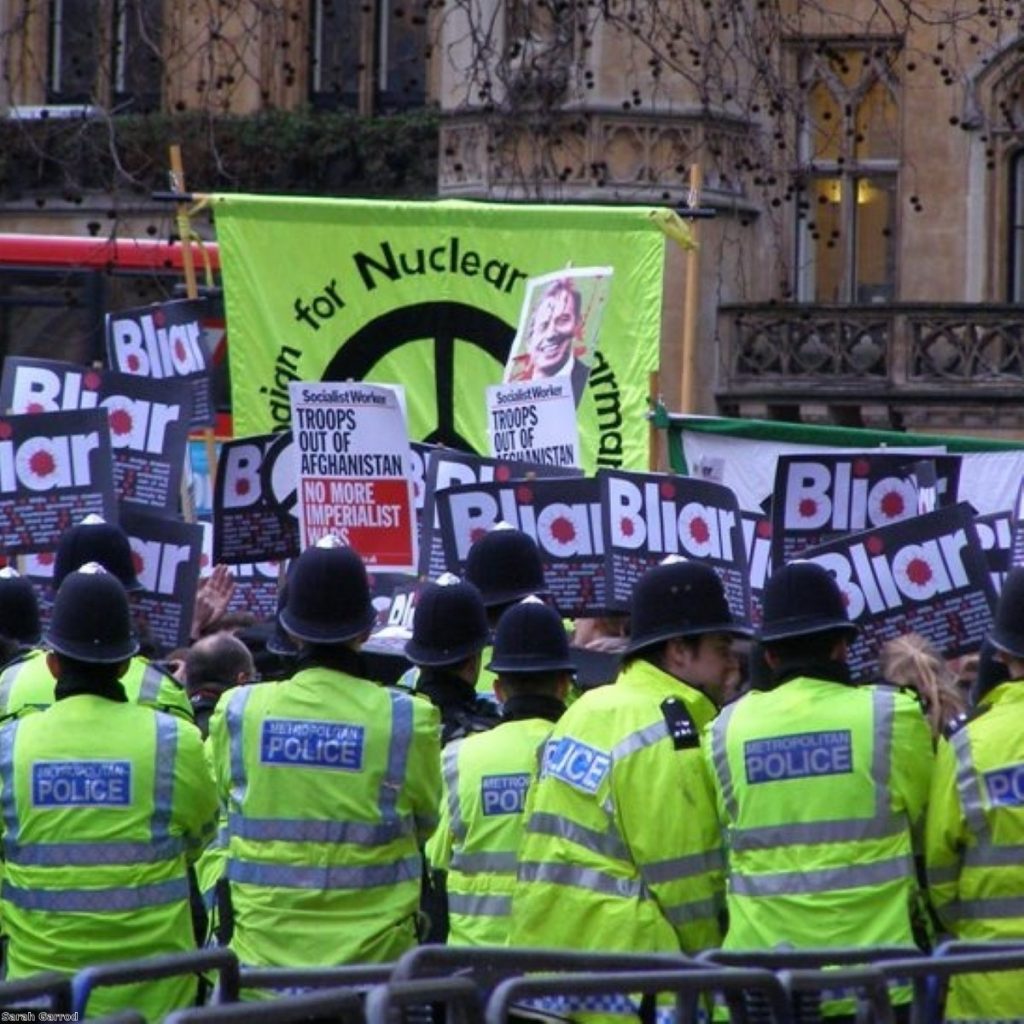Parliament protest ban set to be scrapped
By Ian Dunt
MPs will vote on whether to end the ban on protests around parliament today, by passing the constitutional reform and governance bill through its committee stage.
The restrictions on protests in Westminster have long been a cause of angst among civil libertarians and activists, whose concerns were given greater impetus by the arrest of Maya Anne Evans for reading out names of soldiers killed in Iraq at the Cenotaph.
Measures contained in today’s bill, which will now go to reort stage if passed, will scrap sections 132 to 138 of the Serious Organised Crime and Police Act 2005 (Socpa), which originally banned protest within half a mile of Westminster without authorisation.


In particular, sections 132 and 134 criminalised unauthorised demonstrations in the vicinity of parliament and allowed limitations to be placed on the place, time, duration, size and noise levels of any demonstration.
At the time, civil liberties group Liberty said: “The right to peaceful protest goes to the heart of the British tradition of liberty.
“It is an indictment upon the government that they seek to pass primary legislation which will end demonstrations near parliament.”
But campaigners remain concerned at replacement provisions placed in the bill – notably a new section amending the Public Order Act 1986.
The section, 14ZA, applies to public processions or public assemblies where the route or assembly is being held “wholly or in part” within the area around parliament.
It allows the secretary of state to specify “requirements that must be met in relation to the maintaining of access to and from the Palace of Westminster”.
Liberty claims the order-making power is very broad – there is no clear definition of what would constitute a ‘requirement’, nor what is meant by ‘maintaining access’.
The group highlights the fact there are no limits on what and how many requirements the secretary of state can order – leaving “a broad catch-all order-making power with significant potential for regulating and restricting protest around parliament”.
A major concern at the time Socpa was passed centred on the continued presence of Brian Haw, a peace protestor, who has been camped outside parliament since 2001.
But a judge ruled it to be retrospective and Mr Haw remained in his spot directly outside the front gate of parliament, a place he continues to occupy today.
The pledge to end the restrictions on protest around parliament was one of Mr Brown’s first acts as prime minister.









